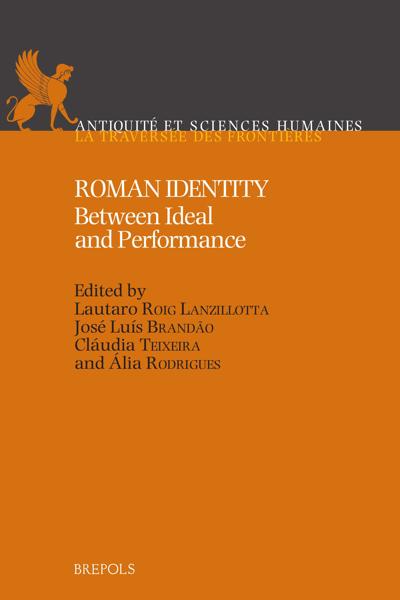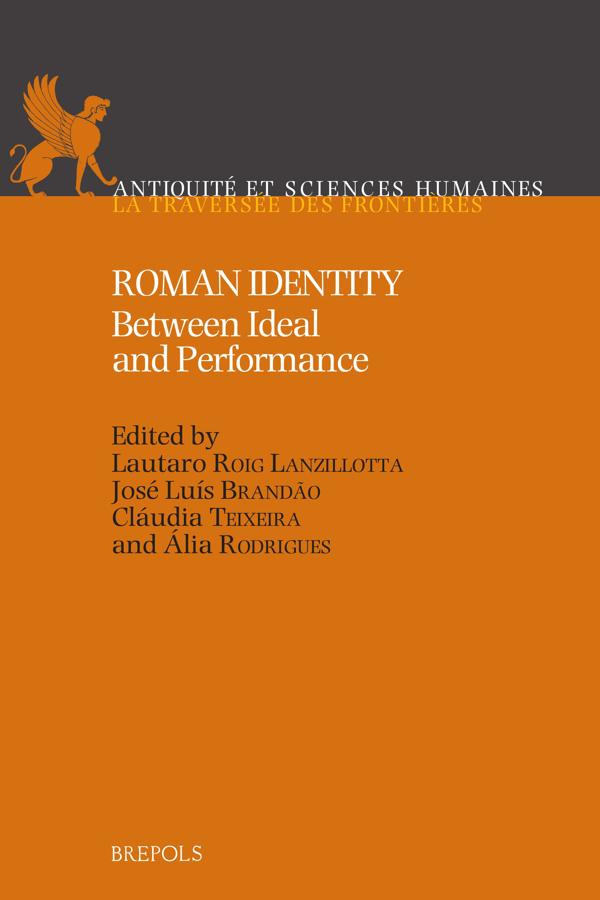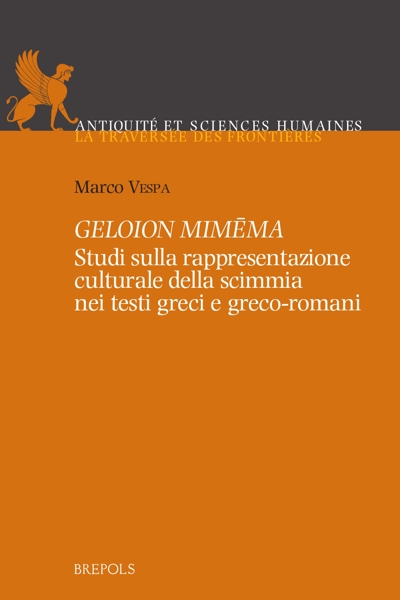
Roman Identity
Between Ideal and Performance
Lautaro Roig Lanzillotta, José Luís Brandão, Cláudia Teixeira, Ália Rodrigues (eds)
- Pages: 402 p.
- Size:156 x 234 mm
- Illustrations:10 col., 2 tables b/w.
- Language(s):English
- Publication Year:2023
- € 75,00 EXCL. VAT RETAIL PRICE
- ISBN: 978-2-503-59922-9
- Paperback
- Available
- ISBN: 978-2-503-59923-6
- E-book
- Available
This volume sheds light on a variety of performances and manifestations of Roman identity—not only by studying sources in which the self or the individual is the primary focus, but also by considering case studies of specific elements associated with Roman identity
“Finally, the volume will undoubtedly attract attention and provide a solid background for further research as there are still many questions to be answered about Roman identity(ies), their performances, and manifestations.” (Tomas Riklius, in Bryn Mawr Classical Review, 29.01.2024)
“(...) este Volume dá um contributo relevante para o estudo da identidade romana, sobretudo a partir de fontes textuais, deixando de parte outras fontes, como a arqueológica ou, em grande medida, a epigráfica. Sendo um Volume que reúne estudos de vários autores, é notável o esforço editorial.” (Joaquim Pinheiro, in Euphrosyne. Journal for Classical Philology, 51, 2023, p. 572)
L. Roig Lanzillotta is a Full Professor in New Testament and Early Christian Studies at the University of Groningen.
J. Lopes Brandão is an Associate Professor in Classical Studies at the University of Coimbra and PI of the BioRom Project.
Cláudia Teixeira is an Assistant Professor in Literature at the University of Évora and co-PI of the BioRom Project.
Ália Rodrigues is a Postdoctoral Fellow of the BioRom Project (University of Coimbra).
Recent years have seen a significant increase in migration and displacement. Due to economic, political, and climatic pressures, large numbers of individuals are leaving their countries of origin and settling in new environments and societies. As a result, national identity has increasingly come to the fore in public discourse. Shaping and reshaping national agendas, debates surrounding national identity are affecting policies and influencing voting behaviours. Discourse on this issue is often centred on the idea of autochthony and nativism. Yet we do not encounter such anxieties in ancient Rome, one of the longest-lasting political orders in history. Unlike among the Greeks, the idea of autochthony did not take root among the Romans. Instead, Rome’s identity tended to be fluid, accommodating the development of highly variegated and multi-ethnic groups and societies.
The purpose of this volume is to understand how the Romans represented themselves and how others defined and regarded them. It aims to identify the various narratives that contributed to the construction of Roman self-representation by raising the following questions: What stories did Romans tell about themselves? How did they enact and perform their selfhood in biographical and autobiographical sources? How did Greek and Judean sources understand and define Roman identity? And, taken together, how did these narratives influence Roman self-perception?
Rather than arguing for a monolithic or coherent understanding of Romanitas, this volume explores a variety of performances and manifestations of Roman identity. It focuses both on sources where the self or individual is the primary focus, alongside more general texts dealing with specific elements of Roman identity.
Introduction: Defining Self and Other in Changing Situations and Discourses. The Dynamism and Fluidity of the Notion of Identity (Lautaro Roig Lanzillotta)
I. Roman Identity in (Auto)Biographical Texts
Similarities and Dissimilarities: Roman Identity and Models of Behaviour in Nepos’ Punic Lives (Francesco Ginelli)
Identity in Latin Verse Autobiography (Helen Kaufmann)
Lucretia, Tullia and Tanaquil: Shaping the Identity of Rome’s Women in the Augustan Period (Nuno Simões Rodrigues)
Pythagoreanism and Roman Identity in Plutarch’s Aemilius Paullus (Davide Morelli)
Overcoming Otherness in Flavian Rome: Flavius Josephus and the Rhetoric of Identity in the Bellum Judaicum (Eelco Glas)
Performing Roman Identity in Suetonius’ Caesars (José Luís Brandão)
When the Emperor is the Other: Perceptions of Identity in the Historia Augusta’s Life of Maximinus (Cláudia Teixeira)
II. Roman Identity in Political and Legal Discourses
Quirites and Populus Romanus: New Identities and Old Figures in Archaic Legal Formulas (Carlo Pelloso)
Rome in the Mirror: Varro’s Quest for the Past, for a Present Goal (Federica Lazzerini)
Sacra privata perpetua manento: A Reading of Cicero’s De Legibus (Cláudia Beltrão)
Roman Maiestas: Becoming Imperial, Staying Republican (Ália Rodrigues)
What’s in a Natio: Negotiating Ethnic Identity in the Roman Empire (Kelly Nguyen)
Index rerum ac nominum




